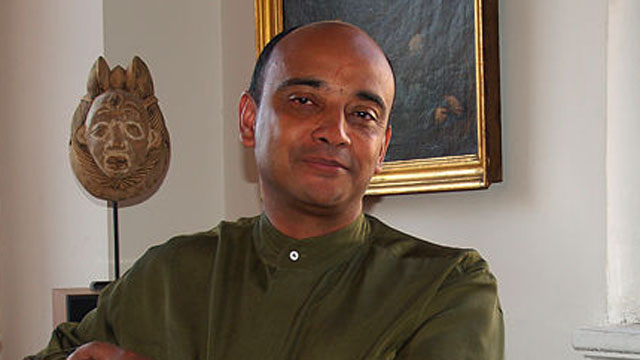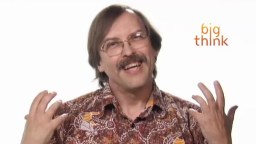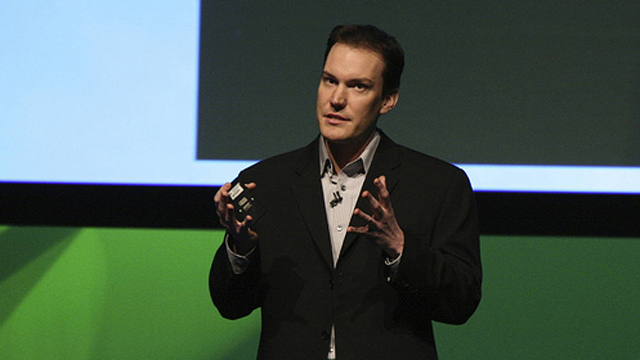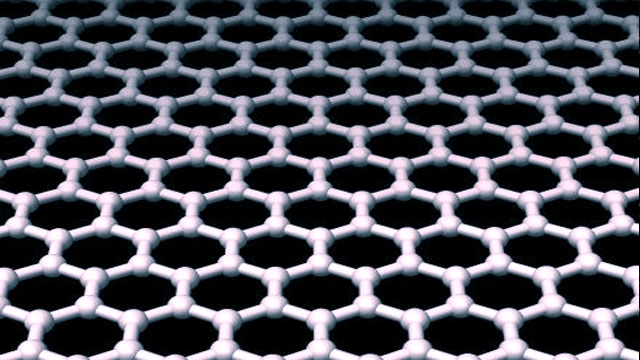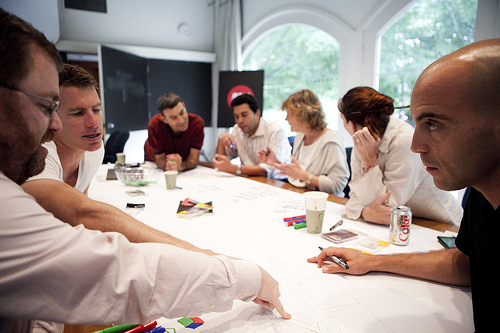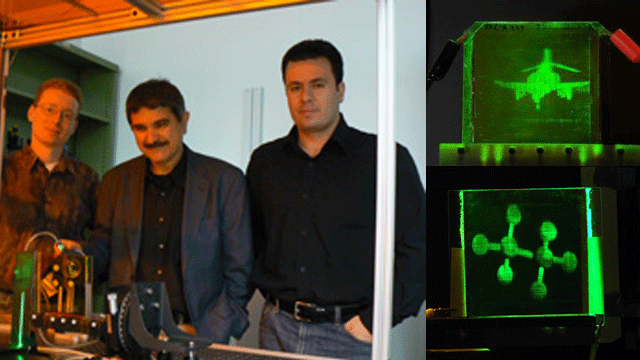Social philosopher William Powers and scientist Gary Small say distractions in the digital age come at the cost of sustained, deep attention.
Search Results
You searched for: Computers
There is much more to the stock-market than meets the eye: highly complex and sometimes secretive trading methods, known as “dark pools”, manipulate the market in power’s favor.
Princeton philosophy professor Kwame Anthony Appiah stopped by the Big Think offices this past week to talk how the concept of “honor” can be mobilized as a force for change. […]
John McCain, in an interview with the NY Times, admitted that he does not know how to use the Web or even email. McCain, who will turn 73 in August, […]
Computing speed doubles once every year and a half, and so does the electrical efficiency of processors, from laptops to servers. The pattern makes our computing lives more convenient.
Back during the 2008 election, John McCain came under much ridicule for admitting that he doesn’t use the Internet or a Blackberry. Turns out that Bill Clinton is in the […]
“Dawkins ignores the possibility that God is a very different sort of being than brains and computers.” A philosopher explains his claim that Dawkin’s arguments are ‘demonstrably faulty.’
Will Google survive the current turning point in Web-based technology? CEO Eric Schmidt thinks the end of searching is near and that computers will soon tell us what to do next.
Programmer Larry Page offers language suggestions to amateur programmers who might not know exactly where to start.
▸
6 min
—
with
“Sometimes it is possible to do good only in secret.” Princeton’s Peter Singer believes that complete transparency is utopian, but that a more transparent world is generally desirable.
The efforts of tens of thousands of players in an online game provided a rich, new set of search strategies for the prediction of protein structures. “Nature” explains the implications.
What do God, Dr. Frankenstein, and Lady Gaga have in common? They are all names that geneticist-cum-media-sensation Craig Venter has been called since announcing in May that he had created […]
Scientists have developed a video game that allows players to predict and build protein structures that have stumped computers because of their inadequate spatial reasoning.
As metaphors for the mind go, one researcher at Stanford says our brains function much more like search engines than computers. We are more probabilistic than deterministic, she says.
Yesterday, on NPR’s Diane Rehm Show, Francis Collins appeared with other guests to talk about the science and ethics of personal genetic testing. The show was prompted in part by […]
“Positive psychology is a movement in social psychology which attempts to change the way that we think about humans,” explains positive psychology expert Shawn Achor. “Instead of focusing merely on […]
“Grandpa” McCain?: The presidential hopeful relies on his wife and aides to show him things online or to read him email messages.As I’ve written, McCain’s admission that he doesn’t know […]
The theory behind the substance graphene was first explored by theoretical physicist Philip Wallace in 1947 as kind of a starting point when he was doing research trying to understand […]
On second thought, living on an active volcano might be problematic.
The volcano news you might have missed this week including new monitoring equipment on Mt. Saint Helens, vog from space and the cost of the Redoubt eruption starts to be felt.
“The only constant is change, continuing change, inevitable change: that is the dominant factor in society today. No sensible decision can be made any longer without taking into account not […]
Some time ago, we featured Denver’s B-Cycle bikesharing program. Today, we are looking at an innovative twist on the traditional bikesharing model. SoBi, The Social Bicycle System, is a minimalist […]
What was the impact of Bush’s Iraq speech? Howard Kurtz of the Washington Post has an excellent round up of media and pundit reaction to the president’s primetime TV appearance. […]
This fall in the sophomore-level course I teach on “Communication and Society,” we spent several weeks examining the many ways that individuals and groups are using the internet to alter […]
PopTech–an organization focused on promoting social innovation and the spread of problem-solving ideas–has announced its inaugural class of 20 Science Fellows. The fellows are early to mid-career leaders in fields […]
While many schools pour hundreds of millions of dollars into athletics, more signs today that among the elite universities, stem cell research is at the center of competition. As I […]
The New Scientist attends the science conference at Google HQ and reports on virtual reality advancements, the direction of new media and how technology will revolutionize education.
Air conditioning, sometimes necessary and sometimes about status, has made it possible for us to live almost anywhere in the world, but its effects on the environment are “chilling”.
For decades, holograms have been seen largely on the screen, in sci-fi movies and TV shows like “Star Wars” and “Star Trek.” The famed holodeck on “Star Trek” was used […]
Digital books and iPads are certainly changing the way that people write, but so did computers when they first came out. You just have to move with the culture and […]
▸
6 min
—
with

